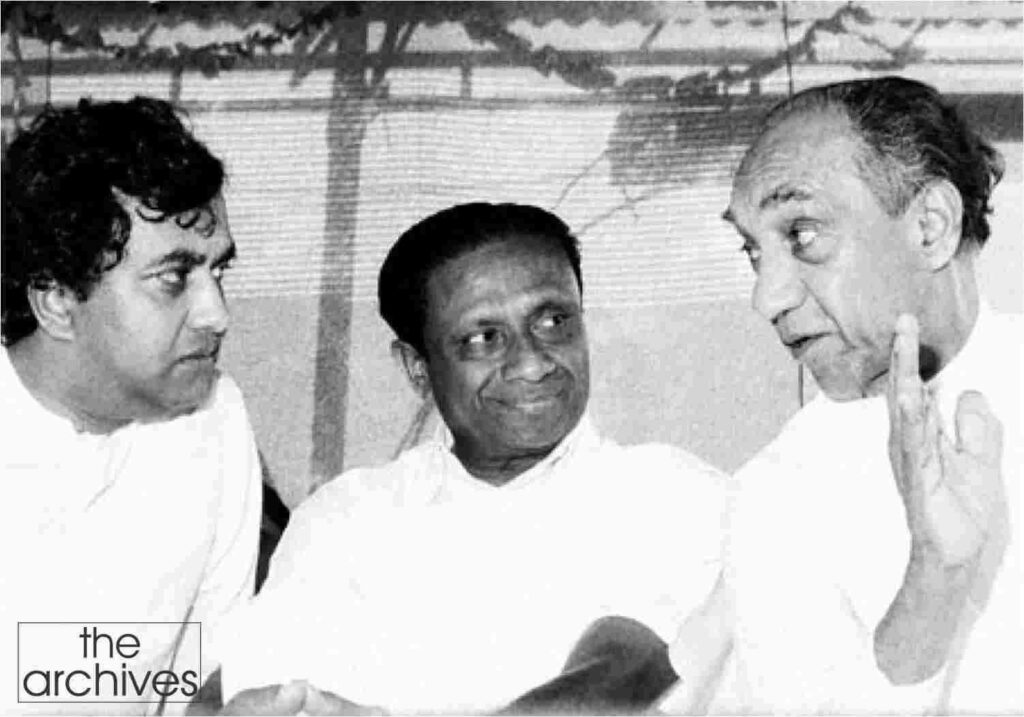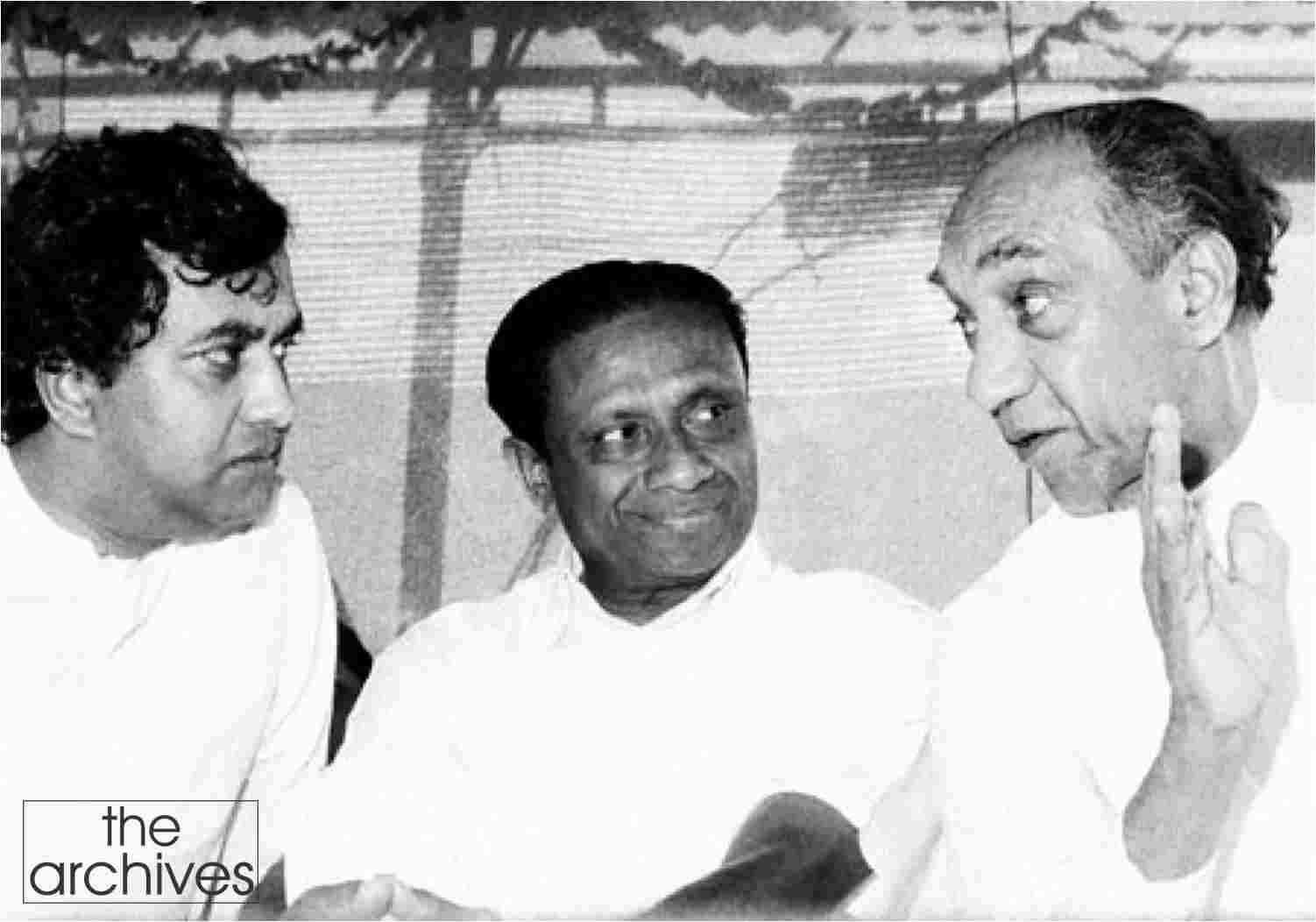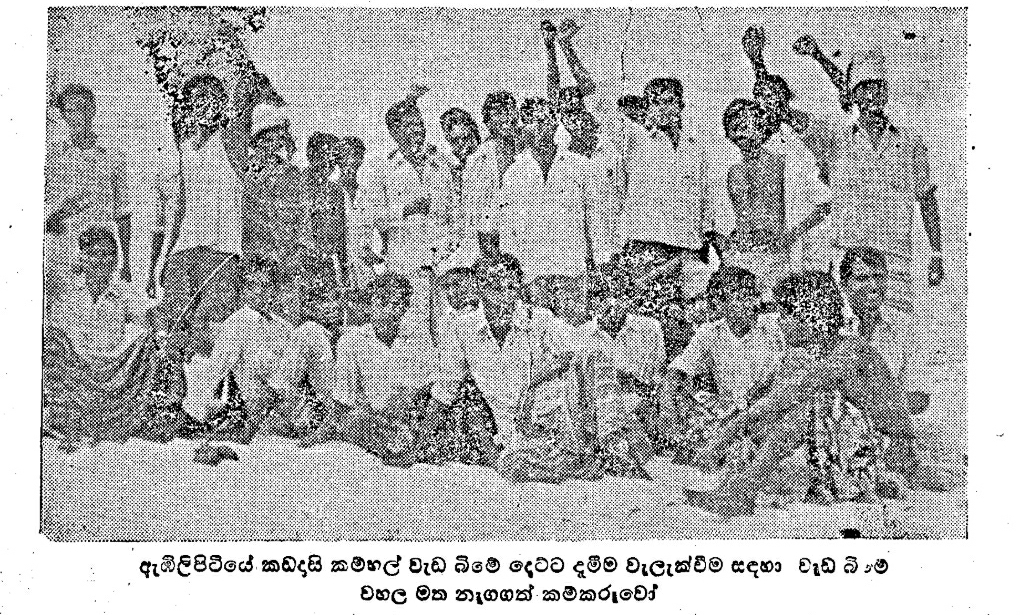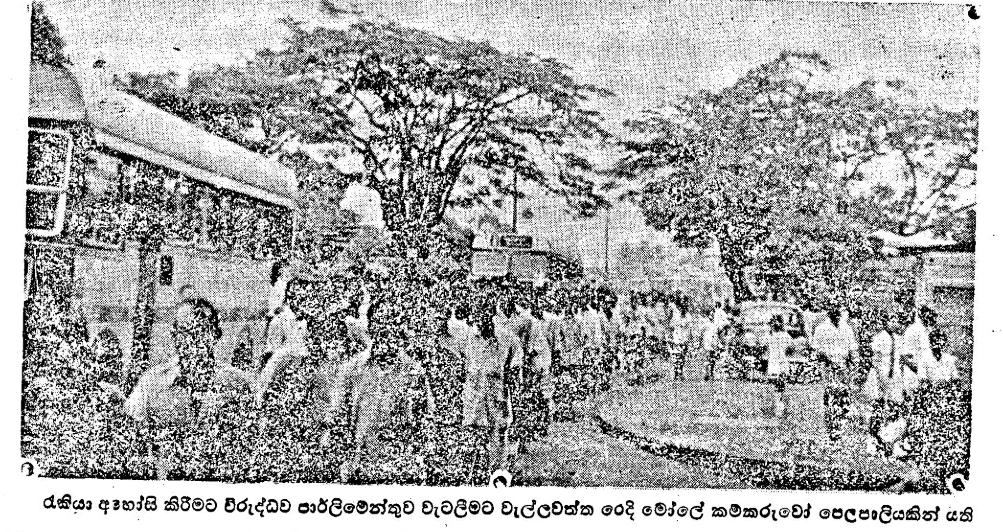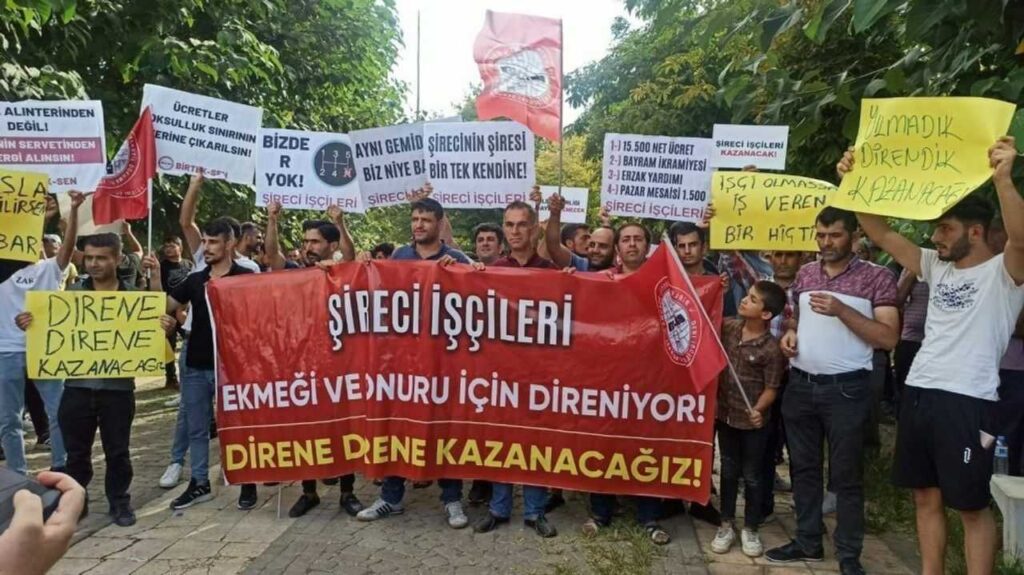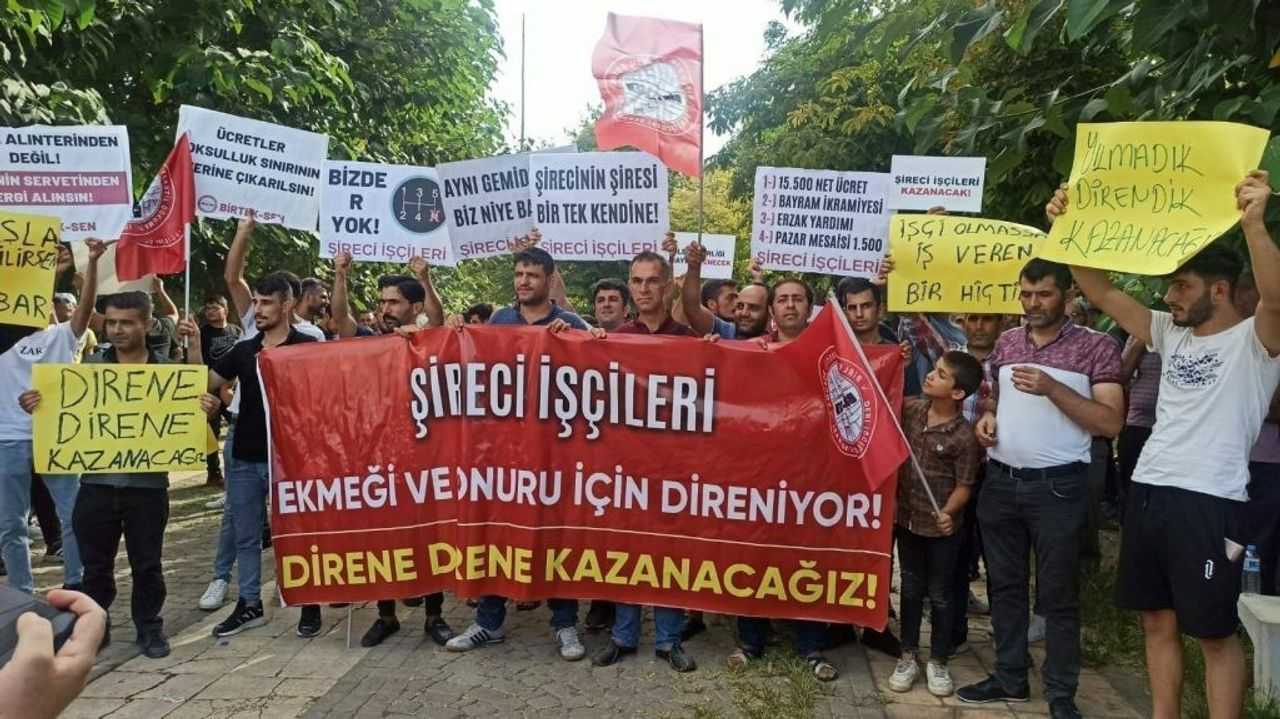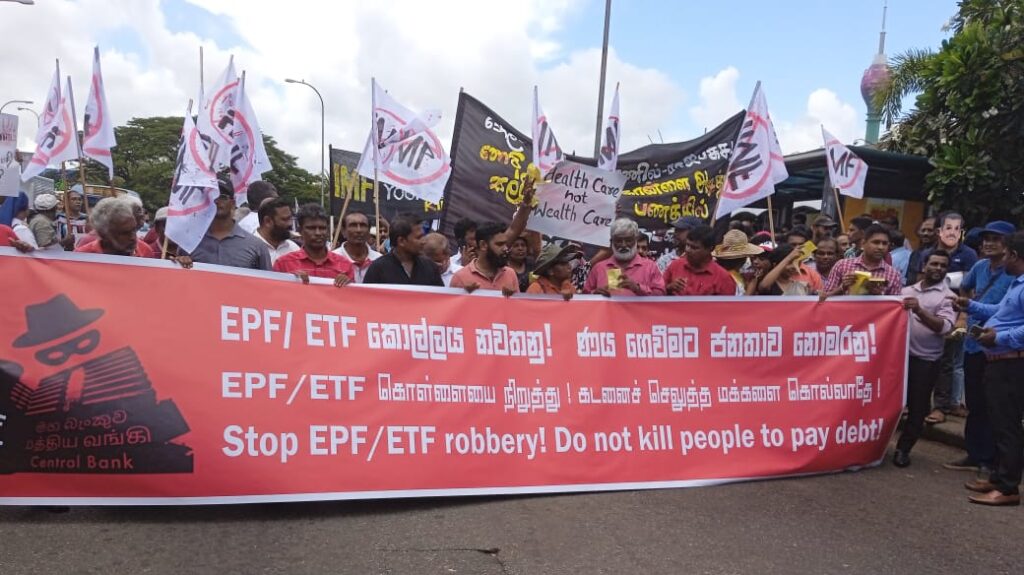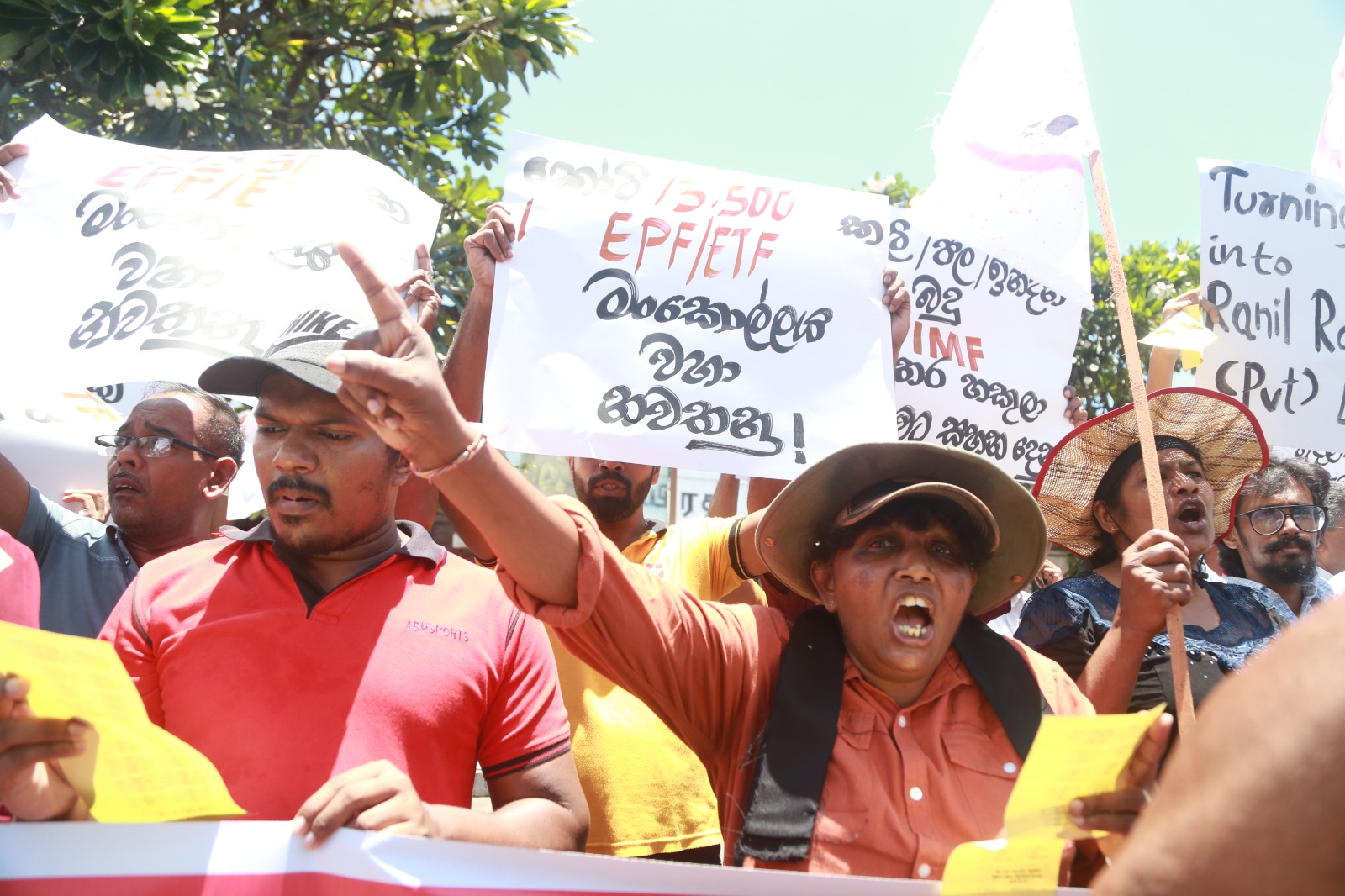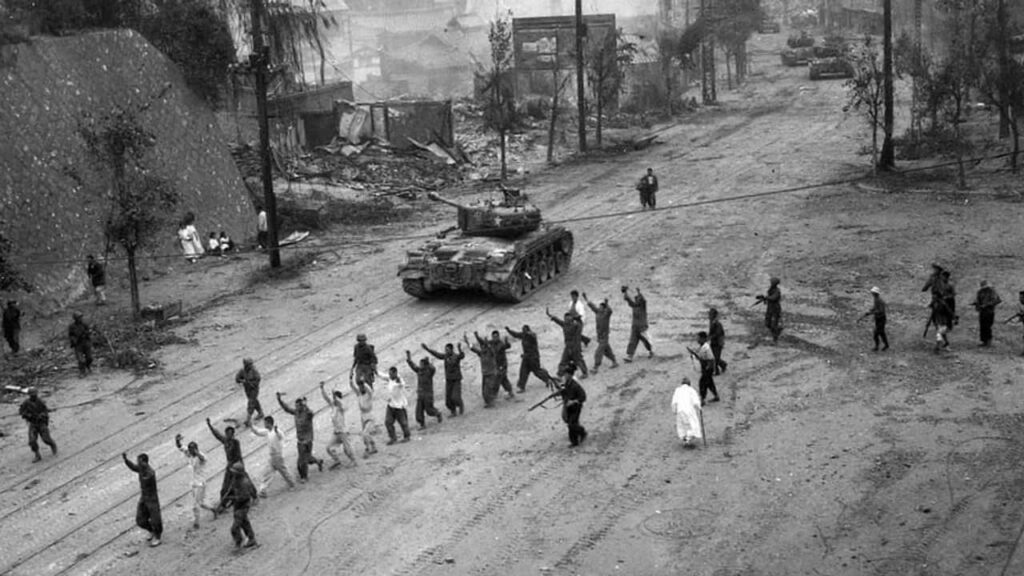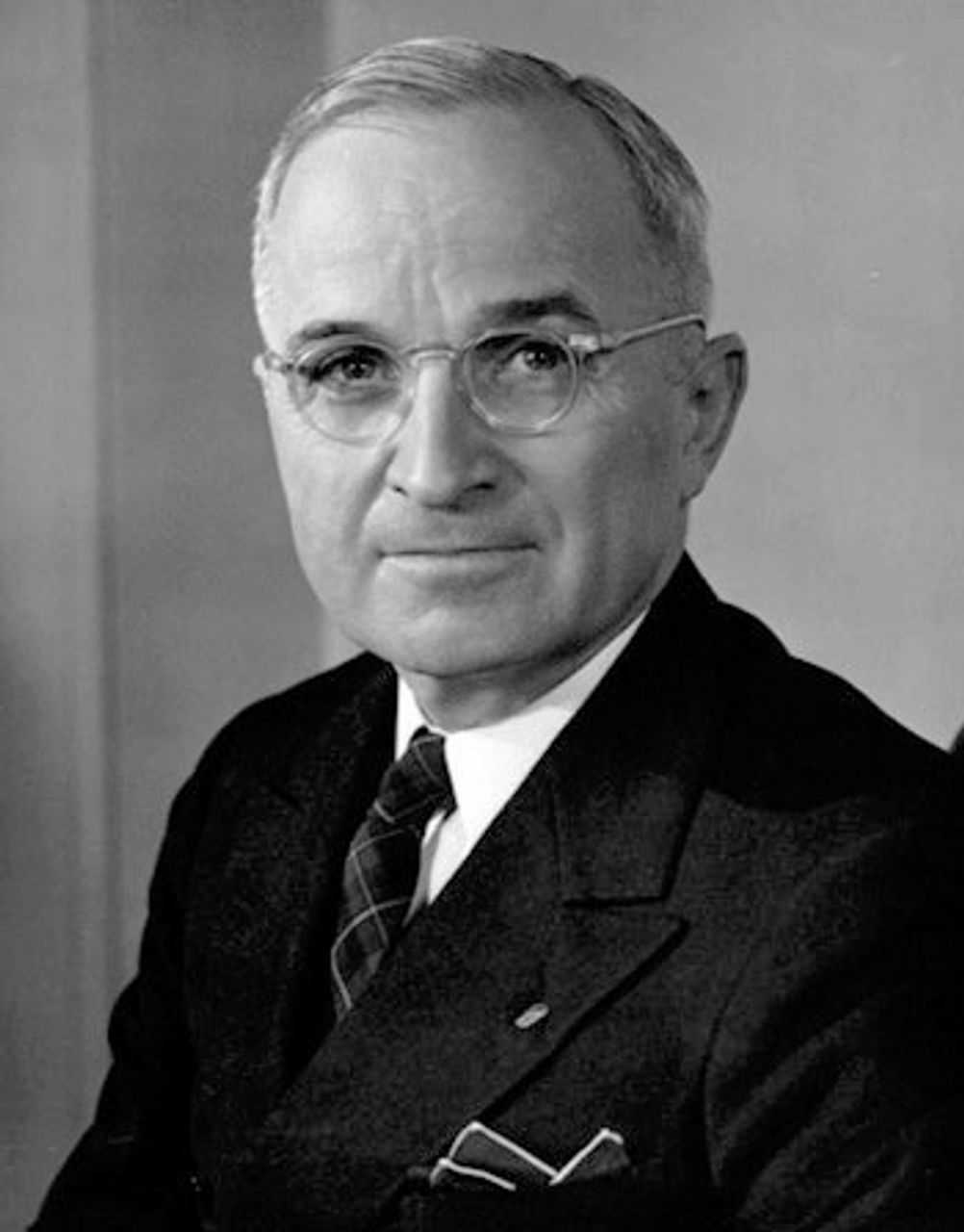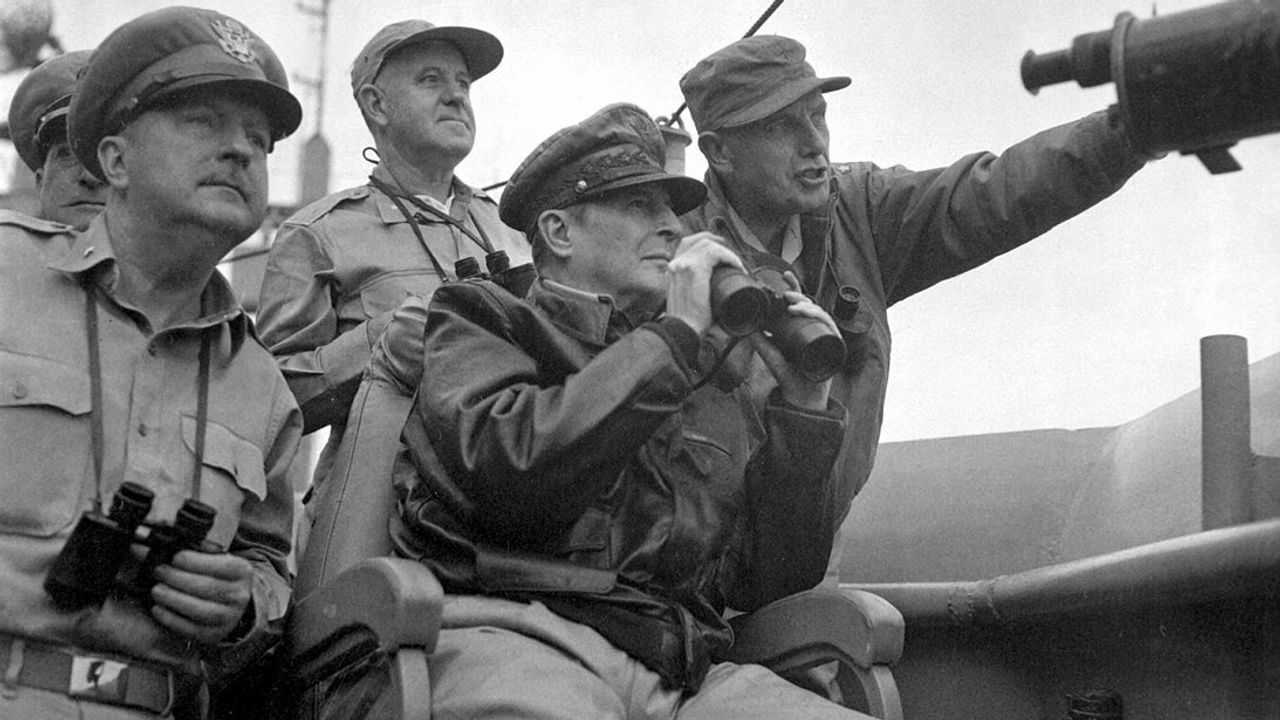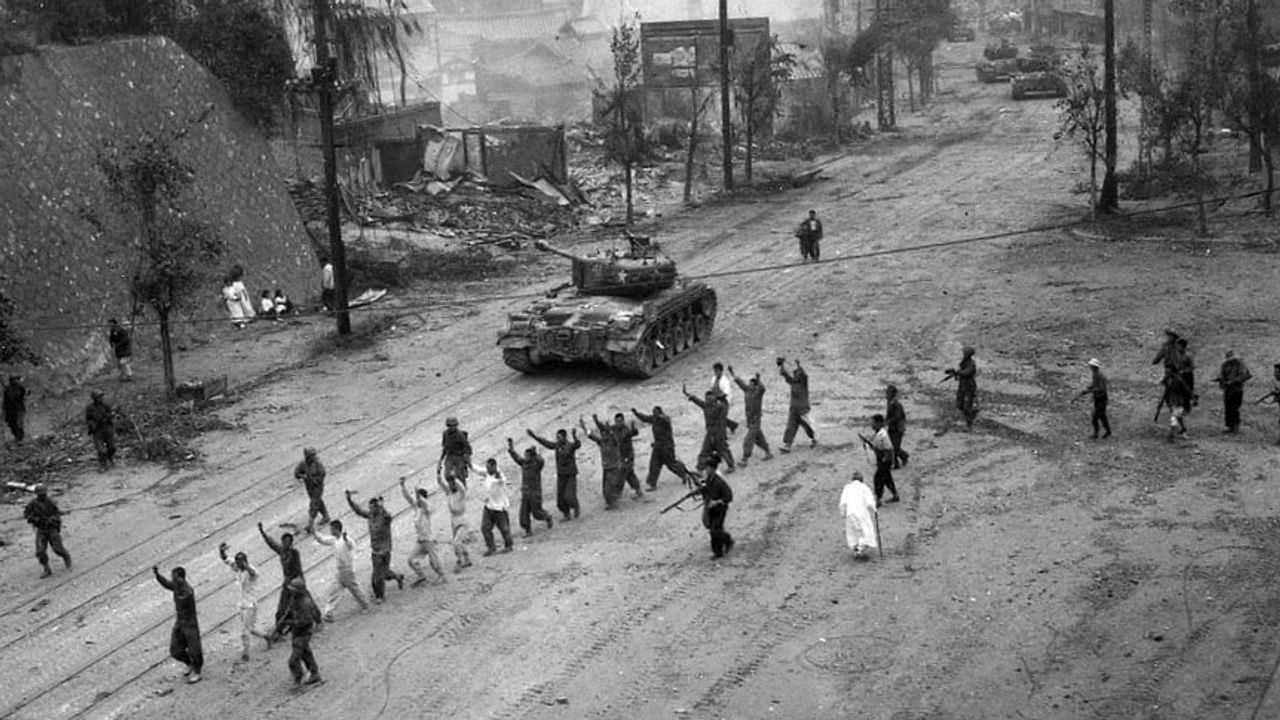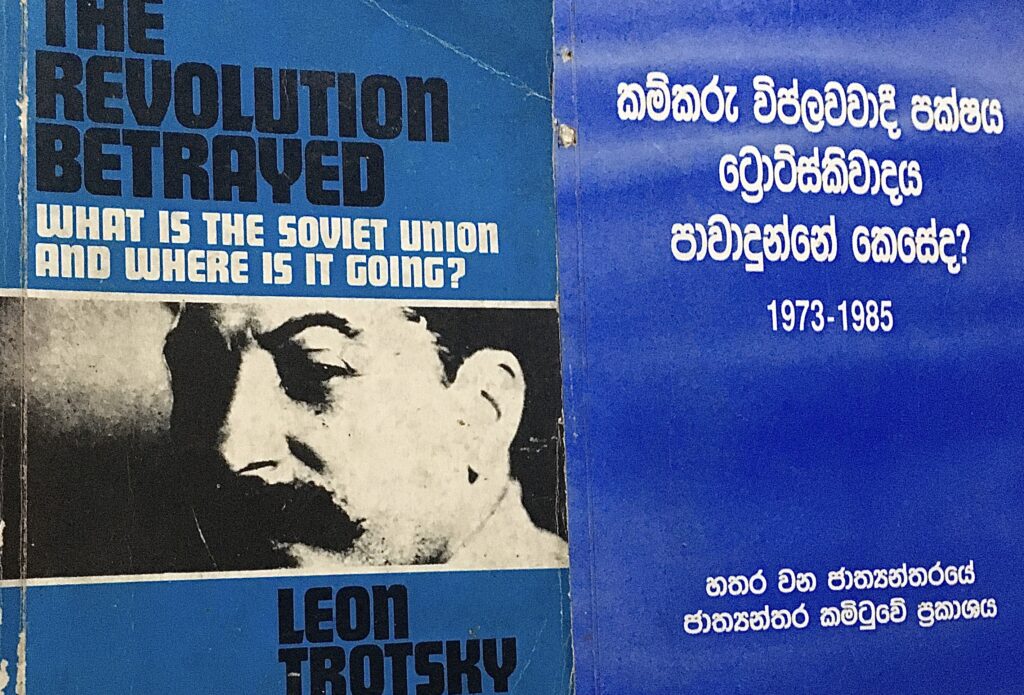වාර්තාකරනයේ විකට රූප: අර්ථසාධක උද්ඝෝෂනය පිලිබඳ ලෝසවෙඅ ලංකා වාර්තාකරුවන්ගේ චර්යාව
නන්දන නන්නෙත්ති විසිනි.
“Over 1000 workers protest in Colombo against Sri Lanka government’s attacks” (ශ්රී ලංකා ආන්ඩුවේ ප්රහාරවලට එරෙහිව 1000කට අධික කම්කරුවෝ කොලඹ දී උද්ඝෝෂනය කරති) යන හිසින් සැප්තැම්බර් 1දා ලෝක සමාජවාදී වෙබ් අඩවියේ (ලෝසවෙඅ) පලකල වාර්තාව එහි ලංකා කර්තෘ මන්ඩලය එම වෙබ් අඩවියේ ඓතිහාසික විශ්වාසනීයත්වය පලුදු කිරීමට ගන්නා ලද සාපරාධී නොසැලකිල්ල නැවතත් ප්රදර්ශනය කලේය. සේවක අර්ථසාධක අරමුදල ආන්ඩුවේ නය ප්රතිව්යුහගත කිරීම යටතට ගැනීමට එරෙහිව වෘත්තීය සමිති හා සිවිල් සංවිධාන එකතුවක් විසින් සංවිධානය කෙරුනු උද්ඝෝෂනයක් කොලඹ කොටුව දුම්රියපොල ඉදිරිපිට දී අගෝස්තු 28 දින පවත්වන ලදී. ඉහත සඳහන් වාර්තාව ඒ ගැන ය. සංවිධාන 40ක සහභාගීත්වයෙන් පැවුත්වුනු මෙම උද්ඝෝෂනයට වෘත්තීය සමිති, ධනපති පක්ෂවල, ව්යාජ වාම සංවිධානවල හා රාජ්ය නොවන සංවිධානවල නියෝජිතයන් ඇතුලුව සහභාගී කර ගත හැකි වූයේ 300ට බෙහෙවින් ම අඩු ප්රමානයකි. (පහත කෙටි වීඩියෝව බලන්න CACPS Facebook පිටුවෙන්)
හතර වන ජාත්යන්තරයේ ජාත්යන්තර කමිටුවේ (හජජාක) ප්රකාශන උපකරනය වන ලෝක සමාජවාදී වෙබ් අඩවිය ලෝක කම්කරු පන්තියේ න්යාය සම්පාදකයා, ප්රචාරකයා හා සංවිධායකයා ලෙස කීර්තියක් උසුලන එකම අව්යාජ සමාජවාදී ලෝක මාධ්යය යි. ලක්ෂ සංඛ්යාත පාඨක සමූහයක් දෛනික ව පරිහරනය කරන එය, නිර්වද්යතාව, විද්යාත්මක විශ්ලේෂනය හා අව්යාජ බව නිසා එහි සතුරන්ගේ පවා ගෞරවයට පාත්ර වන්නේ ය. කම්කරු පන්තියට සත්ය දැනගැනීමට ඇති එක ම ජාත්යන්තර මාධ්ය වන්නේ එයයි. මින් පෙර ද අවස්ථා කිහිපයක ම වෙබ් අඩවියේ ශ්රී ලංකා කතෘ මන්ඩලය ව්යාජ වාර්තා එහි පල කිරීම ගැන අපගේ විරෝධය පල කර ඇත.
“වික්රමසිංහ ආන්ඩුව විසින් විශ්රාම වැටුප්වලට එරෙහිව හා රටේ පවතින කම්කරු නීති ප්රජාතන්ත්ර විරෝධී සංශෝධන මගින් වෙනස් කරනු ලැබීමට එරෙහිව 1200ක් පමන කම්කරුවෝ, 28 දා කොලඹ දුම්රියපොල ඉදිරිපිට දී දිවා ආහාර පැයේ විරෝධතා උද්ඝෝෂනයක් කලහ” යි සඳහන් වාර්තාව වෘත්තීය සමිතිවලට දොස් තබමින් තව දුරටත් කියා සිටියේ සහභාගීත්වය මේ තරම් හීන වූයේ උද්ඝෝෂනය කෑම පැයේ තිබීම නිසා ය යි පවසමිනි. ඊට හේතුව ලෙස දක්වා ඇත්තේ වෘත්තීය සමිතිවලට එවැනි වුවමනාවක් නැතිකම හා අරගලය දියකර දැමීම සඳහා ඒවායේ කැපවීමය.
මේ වනාහී වාර්තාකරුවන් “කෑම පැය” යනුවෙන් තමන් විසින් නම් කරගත් දෙයක් වාර්තාවට ඔබ්බවා කරන ලද විකෘතියකි. මෙසේ තර්ක කරන්නේ කෑම පැය තුල පමනක් උද්ඝෝෂනය සංවිධානය කර ඇත්තේ කම්කරුවන්ගේ පැමිනීම වැලැක්වීමට බවත්, වැඩ වර්ජනයක් ලෙස කැඳවීනම් ඔවුන්ගේ එම කැඳවීමට කම්කරුවන් අවනතව දහස් ගනනින් රොද බැඳ ගනු ඇති බවත් ය. මෙසේ තිබියදීත් කොලඹින් බැහැර කටුනායක නිදහස් වෙලඳ කලාපයේ කම්කරුවන් ද උද්ඝෝෂනයට සහභාගී වූ බව එම වාර්තාව කියයි. සමස්ත සංඛ්යාව අනුව එහි ප්රතිශතයද දශම ගනනක් බව කව යුතු නැත. එහෙත්, සැබවින්ම නම්, දොලහේ පැයට මෙය යොදා ගැනීමෙන් වැඩි පරිත්යාගයක් නැතිවම අහලපහල සිටිනා කම්කරුවන්ට සහභාගී වීමට අවස්ථාව උදාකර දීම මගින් වැඩි සහභාගීත්වයක් ලගා කර ගැනීම සමිතිවල අසාර්ථක වූ උපාය වූයේ නොවේ ද? වෛෂයික සාධක නම් පවතින්නේ ඊට සාක්ෂි ලෙස ය. නිදසුනක් ලෙස, ලංකා බැකු සේවක සංගමයෙන් උද්ඝෝෂණයට සහභාගී වූයේ ඇඟීලි ගැන පෙන්විය හැකි සංඛ්යාවකි. එහි කොලඹ කොටුව අවට බැංකුවල සේවකයන් පමනක් සහභාගී වූයේ නම් දුම්රියපොල අසල ප්රදේශය ඉඩ මදි වන බව කිව යුතු නො වේ.
කම්කරුවන් අරගලවලට එන්නේ සහ ආවේත්, ඉදිරියට එනු ඇත්තේත් නිවාඩු පැය හෝ දවස් ගැන බලා නො වන බව සහ ඇතැම් විට තම ජීවිත පවා නො තකා බව සාමාන්ය දැනීම ඇති ඔනෑම කෙනෙකුට අවබෝධ විය යුතු අතර මෙම ‘කෑම පැය’ යන ව්යාජය එහි පටවා ඇත්තේ හුදෙක් වාර්තාකරුවන්ගේ ආත්මීය වුවමනාවට ගැලපෙන ලෙස වාර්තාව ගොඩ නැගීම සඳහා ය. වෘත්තීය සමිති, 5000ක පමන පිරිසක සහභාගීත්වය අපේක්ෂා කලෝ ය. ඔවුන්ට අවශ්ය වූයේ තමන්ගෙන් ගිලිහී යන කම්කරුවන් සටනක නාමයෙන් මංමුලාවට පත් කර තමන් වටා රොක් කර ගනිමින්, තමන්ට තවමත් බලයක් ඇතැයි පාලක පන්තිය ඉදිරියේ ප්රදර්ශනය කර වාසිදායක ගනුදෙනුවක් ඇති කර ගැනීමට ය. එය බොහෝ කම්කරුවෝ වටහාගෙන සිටියහ. මේ තතු තුල උද්ඝෝෂනයට සැබැවින් ම සහභාගී වූයේ සමිති නායකයන් අපේක්ෂා කල ප්රමානයෙන් 5%කට ආසන්න සංඛ්යාවක් පමනි.
පසු ගිය කාල පරිච්ඡේදය පුරා කම්කරුවන් හා සෙසු මහජනතාව අරගලයට පැමිනියේ කාගේ හෝ ඉල්ලීමක් උඩ නො වන අතර ඒවා එකකට පසු එකක් පාවා දීමේ ප්රතිඵලය ලෙස කම්කරු පන්තිය තාවකාලික ව හති අරිමින් සිටිති. එසේ නො වූයේ නම් කැඳවීමක් ලැබුනත් නැතත් මෙම උද්ඝෝෂනයට සහභාගීවිමට වෛෂයික පදනම් ඇත. උක්ත වාර්තාව ‘කෑම පැය’ට සිමා නො කලේ නම් දහස් ගනනින් සහභාගී වනු ඇති බව පාඨකයාට ඒත්තු ගැන්වීමට වෙර දරන්නේ මෙම සත්යය කරුනු පැදුර යටට තල්ලු කර දමමිනි.
ප්රජාතන්ත්රවාදී රාජ්ය සේවක සමිති සම්මේලනයේ එම්.ඩී.ආර්. අතුල ප්රමුඛ ව මෙම නායකයන්ගෙන් කොටසක් සහභාගී වූ විදුලි පාරිභෝගික සංගමයේ රැස්වීමක් එදිනම උදේ කොලඹ මහජන පුස්තකාල ශ්රවනාගාරය තුල පැවැත්වින. පුනර්ජනන බලශක්ති ප්රභවය වර්ධනය කිරීමට ඉදිරිපත් වූ ආයෝජකයන් දුර්මුඛ කරමින් හා ඔවුන්ට විශාල අලාභ ගෙන එමින් ලංකා විදුලි බල මන්ඩලය (ලංවීම) හදිසි මිල දී ගැනීම් සිදු කරන බවට එහි කථිකයෝ චෝදනා කලෝ ය. පුනර්ජනන බලශක්ති ප්රවර්ධන සමාගම්වල අනුග්රහය මත පැවැත්වෙන බව පෙනෙන්නට තිබුනු මෙම රැස්වීම සඳහා සහභාගී වූ ප්රේක්ෂාගාරයේ වැඩි කොටසක් ද සමන්විත වූයේ එකී සමාගම් විසින් සහභාගී කරවන ලද අයවලුන්ගෙනි. එහි දී මෙම තත්ත්වය නිවැරදි කිරීමට මැදිහත් වන ලෙස ජනාධිපති වික්රමසිංහගෙන් ඉල්ලා සිටි එකී සංගමයේ නායකයෝ, ඊලඟට කොටුව දුම්රියපොල ඉදිරිපිට අර්ථසාධක උද්ඝෝෂනයට එක් වූහ. වේදිකා දෙදරවන බිරුසන් දීම් හා ප්රශ්නය විසඳන ලෙස ජනාධිපතිවරයාට කන්කෙඳිරි ගෑම විනා, විදුලි පාරිභෝගිකයන් වෙත වේවා, EPF අරමුදලේ සාමාජික කම්කරුවන් වෙත වේවා, ඉදිරිපත් කල හැකි කිසියම් ම හෝ සාධ්ය වැඩ පිලිවෙලක් මේ නායකයන් අත තිබුනේ නැත. කම්කරුවන් සහ දුගීන් මේ නායකත්වයන් තුට්ටුවකට නොතැකීමේ කවර නම් පුදුමයක් ද?
වසරකටත් අඩු කාලයකට පෙර පාර්ලිමේන්තුවේ සියලු පක්ෂ හා නියෝජිතයන් ප්රතික්ෂේප කරනු ලැබූ ශ්රී ලංකාවේ මහජනතාවට වෘත්තිය සමිතිකාරයන්ගේ දිගු කාලීන පාවා දීම නො දැනෙන්නට හේතුවක් නැත. ඔවුන්ගේ ගැටලුව වන්නේ ඔවුන්ට එම පාවා දීම සැබෑ පන්තිමය අර්ථයකින් වටහා ගැනීමට නො හැකි වීම හා, ඔවුන් සතු විකල්ප ක්රියා මාර්ගයක් හා ඊට මඟ පෙන්වන නායකත්වයක් නොතිබීම ය. අව්යාජ කම්කරු පන්ති සංවිධානයකට මේ තත්වය යටතේ කම්කරු පන්තියේ නායකත්වය අත්පත් කරගත හැකි ය. ඒ සඳහා වැනීම්, පැකිලීම්වලින් තොර අරගලයක් අවස්ථාවාදයට එරෙහි ව වර්ධනය කල යුතු ය. ඒ වනාහි, දැනටමත් දන්නා වියුක්ත සත්යයන් ජීවමාන පන්ති අරගලය මත පැටවීමේ කුසීත භාවිතයෙහි ගැලී, ‘කම්කරුවන් තවම සූදානම් නැත’ යන මන්ත්රය පසුපස දොරෙන් පිලිගැනීමේ ම එක් ආකාරයක් වන, කම්කරු පන්තියේ සටන් උවමනාව උත්කර්ශයට නැංවීමේ ආත්මීයත්වයට යට වීමේ පිලිවෙත්වලට ද එරෙහි දෘඩ අරගලයක් සමග බැදී ඇති කර්තව්යයකි.
ඒ වෙනුවට, “මෙම සීමිත විරෝධතාවය කැඳවනු ලැබුනේ ආන්ඩුවේ ප්රහාරවලට එරෙහි කම්කරු පන්තියේ වර්ධනය වන කෝපය සමනය කිරීමට ය” යි යන සාමාන්යයීකරනය කෙරුනු සත්යය උක්ත ලෝසවෙඅ වාර්තාව තුල නිවේදනය කර ඇත. සමිතිවලට “වික්රමසිංහ ආන්ඩුවට එරෙහි ව සැබෑ දේශපාලන හා කාර්මික අරගලයක් තුල කම්කරුවන් බලමුලු ගැන්වීමට කිසිදු අදහසක් නැත” යනුවෙන් එහි සඳහන් කෙරෙන්නේ ද එවැනි ම සත්යයකි. එහෙත් මේ කිසිවක්, අප හමුවේ මේ මොහොතේ පවතින සත්ය කරුනු තුල විමර්ශනය කිරීමෙන් තොර ව, මේවා පිලිබඳව තම ඔලුවට එන අදහස් අනුව තත්ය සිදුවීම් හැඩ ගස්වමින් ඒවා මහජනයා මත පැටවීමට යත්න දැරීම ලොසවෙඅ අනුගමනය කරන මාක්ස්වාදී විධික්රමයට සපුරා ම හතුරු ය.
මෙම සිද්ධිය පිලිබද ද-සෝෂලිස්ට් හි පල කල ලිපියේ මාතෘකාව වූයේ “සඳුදා කොලඹ දුම්රියපොල ඉදිරිපිට රඟ දැක් වූ සුලු ධනේශ්වර නාඩගම” යන්න යි. ඒ අප සොයාගත් කරුනු විශ්ලේෂනය කිරීමෙන් බැසගත් නිගමනයයි. එය පෙන්වා දී ඇති පරිදි, සමිති නායකත්වය කම්කරුවන් සහභාගීකරවා ගැනීමේ අසීරුතාවකට මුහුන දී සිටිති. “පෙරටුගාමී සමාජවාදී පක්ෂයේ නායකයෙකු වන දුමින්ද නාගමුව කල් ඇතිව ම කම්කරුවන්ගේ සහභාගී නො වී ම ගැන මැසිවිලි නගා තිබිනි. ‘ලක්ෂ 22 පමන වන කම්කරුවන් දැන්වත් මේ ගැන සිතා බලනු ඇතැයි විශ්වාස කරන’ බව ඔහු ප්රකාශ කලේ ය. පොදුවේ සමිති නායකයන් සමාජගතකරන අදහස වන්නේ, “කම්කරු පන්තිය වනාහී තමන්ගේ ම අයිතීන් රැක ගැනීමට වුවමනාවක් නැති, මෝඩ, පසුගාමී පිරිසක් බවයි.” කම්කරුවන්ට මේ සමිති හා නායකත්වයන් ගැන විශ්වාසයක් නැති බව ද, නිලධරය ක්රියාකරන්නේ කම්කරුවන් දුර්මුඛ කිරීමට හා ඔවුනට විරුද්ධව සුලු ධනේශ්වරය උසිගැන්වීමට බව ද අපි එම ලිපියෙන් කරුනු සහිත ව තහවුරු කලෙමු.
සඳුදා කොටුව දුම්රියපොල ඉදිරිපිට නැටුවේ සුලු ධනේශ්වර නාඩගමකි, වෘත්තීය සමිති විගඩම කි. ඉල්ලීම් නොලැබුනහොත් ආන්ඩුව පෙරලන බවට වහසි බස් දෙඩූ සමිති නායකයෝ, පෙලපාලියක් ලෙස මහ බැංකුවට යන නියායෙන් මඳක් ඉදිරියට ගියහ. “95(1) වගන්තිය යටතේ විසිර යන්න ඔයගොල්ලන්ට අන කරනවා”යි පොලිසිය ඇනවූ කල, “අපිට එහෙම (පෙලපාලි) යන්න ඕනෑ කමක් නෑ. මේක අද කරන්නෙ නෑ කියා ප්රකාශයක් කරන්න, අපි (තව ඉදිරියට) යන්නෙ නැහැ” යි සමිති නායකයෝ පොලිසියට සපථ වූහ. අර්ථසාධක අරමුදල ප්රතිව්යුහගත කරන්නේ නෑ කියා පොරොන්දුවක් ඉල්ලා රැස්ව සිටි ඇතැමෙකු හඬ නැගූ විට, ඒ වෙනුවට “අද කරන්නෙ නෑ කියා” පොරොන්දුවක් දෙන්නැයි උද්ඝෝෂනයේ මෙහෙයුම් භාරව සිටි ප්රධානියෙකු වන, සමගි වෘත්තීය සමිති ඒකාබද්ධ පෙරමුනේ කැඳවුම්කරු හා පාර්ලිමේන්තුවේ ප්රධාන විරුද්ධ පක්ෂයේ වෘත්තීය සමිති අංශයේ නායකයෙකු ද වන ආනන්ද පාලිත කිහිප වරක් ම අවධාරනය කලේ ය. “අපට මිනිස්සුන්ගෙ විශ්වාසය දිනා ගන්න ඕනෑ” යි ඔහු ඇත්ත ම කීවේ ය. සියල්ල සිදු වූයේ කල් ඇතිව සකසා ගත් පිටපතට අනුව ය.
ද-සෝෂලිස්ට් වාර්තාව සඳහන් කල පරිදි, මීට අදාල නඩුවක් ශ්රේෂ්ඨාධිකරනයේ විභාග වෙමින් පවතින නිසා, මහ බැංකුව, අරමුදල ප්රතිව්යුහගත කිරීම පිලිබඳ තීන්දුව සැප්තැම්බර් 21 දක්වා කල් දැමී ය. සමිති නායකයෝ මෙය ද සිය අරගලයේ ජයග්රහනයක් යයි පාරම් බෑහ. (එම අවස්ථාව, පහත කෙටි වීඩියෝවෙන්. CACPS Facebook පිටුවෙනි)
මේ අතර පොලිසිය මහ බැංකුව සමග සාකච්ඡාවක් දෙන බවට පොරොන්දුවක් ගෙන ආවේ ය. එවිට සමිති නායකයෝ ජයග්රහනයක් ලෙස මෙම පොරොන්දුව හුවා දක්වමින් රැස්ව සිටි පිරිසට කතා කර, උද්ඝෝනය අවසන් කිරීමට කටයුතු කලහ. සැප්තැම්බර් 5 දින මහ බැංකුව සමග පැවති මෙකී සාකච්ඡාව ඊට නියමිත පරිදි ම අසාර්ථක විය. සමිතිවලට අනුව දැන් තිබෙන්නේ වෙනත් ධනපති ආන්ඩුවක් ගෙන්වාගෙන තව සාකච්ඡාවක් ගැනීම ය. අවාසනාව නම් ඒ වන විට කටයුතු අවසාන වී තිබීම ය. ද-සෝෂලිස්ට් පෙන්වා දුන් පරිදි, මෙම උද්ඝෝෂනය මුලුමනින් ම කම්කරුවන්ට විරුද්ධ, ඔවුන් සිරකර පහර දීම සදහා අවස්ථාව සලසා ගැනීම උදෙසා කැඳවන ලද ප්රතිගාමී මෙහෙයුමකි. වරාය නැගෙනහිර පර්යන්තය පුද්ගලීකරනය කිරීම, තෙල් සංස්ථාවේ කොටස් පෞද්ගලික අංශයට පැවරීම යනා දී සෑම අවස්ථාවක දී ම සිය බෙලහීනකම ද කම්කරු විරෝධී ධනේශ්වර ස්වභාවය ද ප්රදර්ශනය කල මෙම වෘත්තීය සමිතිවලින් අන් යමක් අපේක්ෂා කල නො හැකි ය.
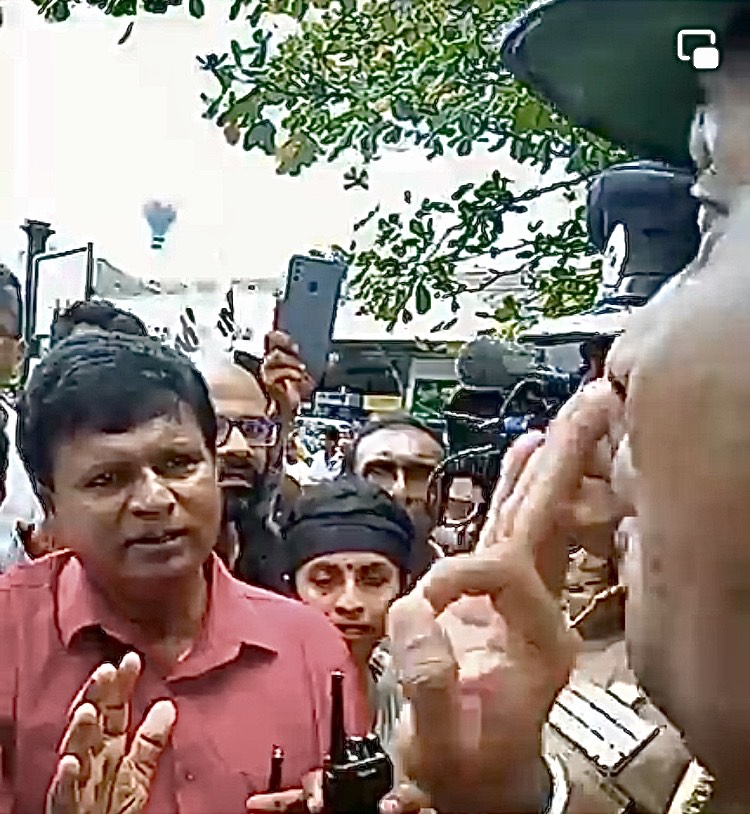
උක්ත ලෝසවෙඅ ලිපිය අවසන් වන්නේ පොහොර සංස්ථාවේ හිටපු සේවකයෙකුගේ ප්රකාශයකිනි. “අප දිගටම පීඩනය යෙදිය යුතු ය. රනිල්ට (වික්රමසිංහ) ඒකාධිපති පාලනය දිගටම ගෙන යාමට අවශ්ය නමුත් අපට අවශ්ය වන්නේ ඔහුව එලවා දැමීමටයි.” උද්ඝෝෂනය මෙහෙය වූ ධනපති හා ව්යාජ වාම පක්ෂවල නායකත්වය දරන සමිති නායකයන් ද කීවේ මෙය ම ය. ද-සෝෂලිස්ට් වාර්තාව පෙන්වා දුන් පරිදි වෘත්තීය සමිතිවල උද්ඝෝෂනය යොමු කෙරුනේ එක්කෝ සහන නැතිනම් තවත් ධනපති ආන්ඩුවක් යන මෙම ධනපති මතය සමාජගත කිරිමට ය. අපට මෙම සිද්ධිය තුල සරලව ම වාර්තා කිරීමට ඇති වැදගත් ම දේ වන්නේ පුලුල්ව පතුරවා හරින මෙම ධනපති මතය එලෙසම සටහන් කර තබන්නේ නම්, ආන්ඩුවේ ප්රවෘත්තිවලට සවන් දෙනවා විනා විප්ලවවාදී මාධ්ය වාර්තාකරනයේ පලක් ඇත්තේම නැත.
ලෝසවෙඅ පදනම් වන බෝල්ෂෙවික්වාදය දත්ත ගැන දැක්වූයේ ඉමහත් සැලකිල්ලකි:
“1917 දී බොල්ෂෙවික් පුවත්පත් විසින් සපයනු ලැබූ දත්තයන්, අන් සියලු පුවත්පත් විසින් සපයනු ලැබූ දත්තයන්ට වඩා නොසැසඳිය හැකි තරම් වඩා නිවැරදි බැව්, ඓතිහාසික විචාරයේ සහ යුගයට අදාල ලියවිලි වල අනුව සනාථ කරමින් ඇත. මෙම නිවැරදි බව බෝල්ෂෙවිකයන්ගේ විප්ලවීය ශක්තියේ ප්රතිඵලයක් විය. එහෙත් ඒ හා සමගම එය ඔවුන්ගේ ශක්තිය වඩාත් වැඩි කලේය. මෙම සම්ප්රදාය අත හැර දැමීම පසු කලෙක ස්ටැලින්වාදයේ වඩාත්ම පිලිකුල්සහගත ලක්ෂනයන්ගෙන් එකක් බවට පත් විය.” (රුසියානු විප්ලවයේ ඉතිහාසය, දෙවෙනි වෙලුමේ 356වෙනි පිට)
අප කම්කරුවන් කැඳවිය යුතු වන්නේ ධනවාදයට එරෙහි අරගලයට විරුද්ධ ප්රධාන බාධකයක් ලෙස පවතින මෙම වෘත්තීය සමිති පෙරලා දමා, කම්කරු පන්ති ප්රජාතන්ත්රවාදය මත පදනම් වන, ස්වාධීන ක්රියාකාරී කමිටු ස්ථාපනය කරමින්, ධනවාදයට එරෙහි මහජන ව්යාපාරයක් ගොඩනැඟීම සඳහා ය.
(උද්ඝෝෂනය අමතමින් කම්කරු විරෝධී ධනපති රාජ්ය රැකීමේ ව්යාජ වාම හා වෘත්තීය සමිති සූදානම නිර්ලජ්ජිතව ප්රකාශ කලේ විශ්ව විද්යාල ආචාර්යවරයෙක් වන අතුලසිරි සමරකෝන් ය. වීඩියෝව CACPS facebook පිටුවෙන්)
ඒ වෙනුවට ප්රස්තුත ලිපිය, වෘත්තීය සමිති හා ව්යාජ වාම නායකත්වය යටතේම පවා ශ්රී ලංකාවේ කම්කරුවන් සටන්කාමී ව අරගලයට ඇදී එන බවක් නිවේදනය කිරීම එහි ප්රමුඛ අරමුන ලෙස සලකාගෙන ඇත. මෙය කම්කරු පන්තිය මුහුන දී සිටින ඓතිහාසික ගැටලු විසඳා ගැනීම සඳහා අරගලය වෙනුවට, එකී ගැටලු මගින්ම පන්තිය තුල ප්රකාශිත පසුගාමීත්වයට අනුගත වීමේ ඇඟවුම් ප්රකාශ කරයි.
කම්කරුවන්ගේ පාර්ශ්වීය ඉල්ලීම්වලට අප පිටුපාන්නේ නැත. ආරම්භයේ සිටම EPF අරමුදල පාලනය කරනු ලබන්නේ මහ බැංකුවේ අධිපතිගේ ප්රධානත්වයෙන් පවතින මුදල් මන්ඩලයක් විසිනි. එය ධනපති ආන්ඩුවලට මිස කම්කරුවන්ට වගකීමට බැඳී නැත. මෙය වෙනස් කල යුතු ය. අරගලය කැඳවූ ධනේශ්වර ඒජන්සි වන වෘත්තීය සමිති ඉල්ලා සිටින්නේ අර්ථසාධක අරමුදල කම්කරුවන්ගේ අරමුදලක් වන නිසා ඒ පිලිබද තීන්දු ගැනීමේ දී සමිති නායකයන් සහභාගි කර ගත යුතු බව ය. යථාර්ථයේ දී රටේ කම්කරු පන්තියෙන් ආසන්න වසයෙන් සියයට 15කට වඩා මෙම සමිති නියෝජනය නො කරන අතර ධනවාදයට පිටින් දශමයකුදු ඒවා සෙලවෙන්නේ නැත. කම්කරුවෝ මෙම වඳ ඉල්ලීම් වෙනුවෙන් නො ව, තමන් විසින් පත්කර ගනු ලබන, තමන් කැමති අවස්ථාවක ආපසු කැඳවිය හැකි මන්ඩලයකට මෙහි පාලනය ලබා ගැනීම සදහා සටන දියත් කල යුත්තාහ. ව්යාජ වාම රැවටිලි වලට එරෙහිව සිටගනිමින්, සෑම වැඩපොලක ම කම්කරු ක්රියාකාරී කමිටු මගින් වෘත්තීය සමිති විස්ථාපනය කිරීම ඒ සඳහා අවශ්ය මූලික කොන්දේසියකි.
වාර්තාකරනයේ විකට රූප: අර්ථසාධක උද්ඝෝෂනය පිලිබඳ ලෝසවෙඅ ලංකා වාර්තාකරුවන්ගේ චර්යාව Read More »


